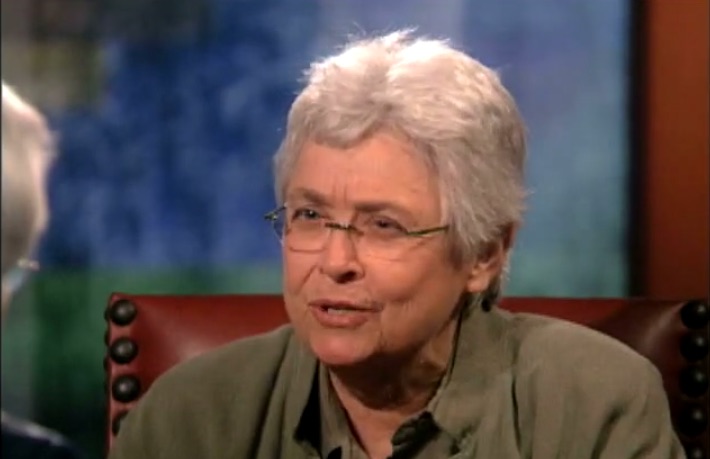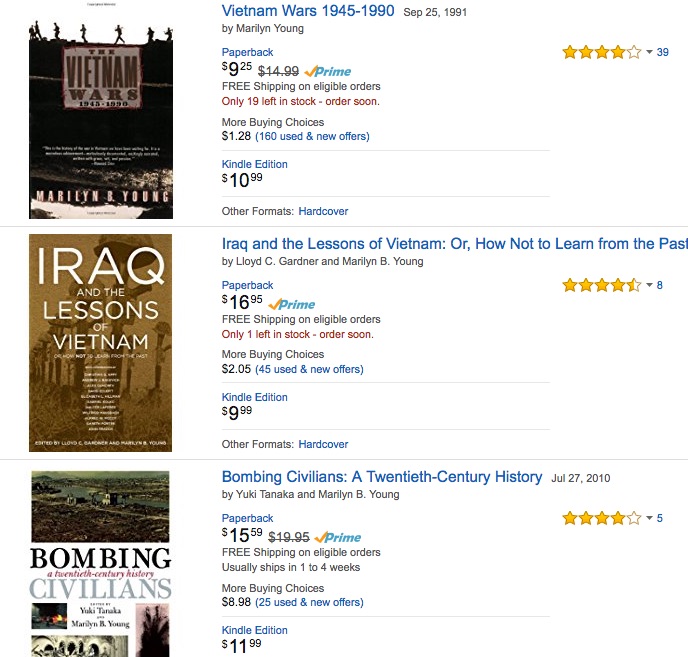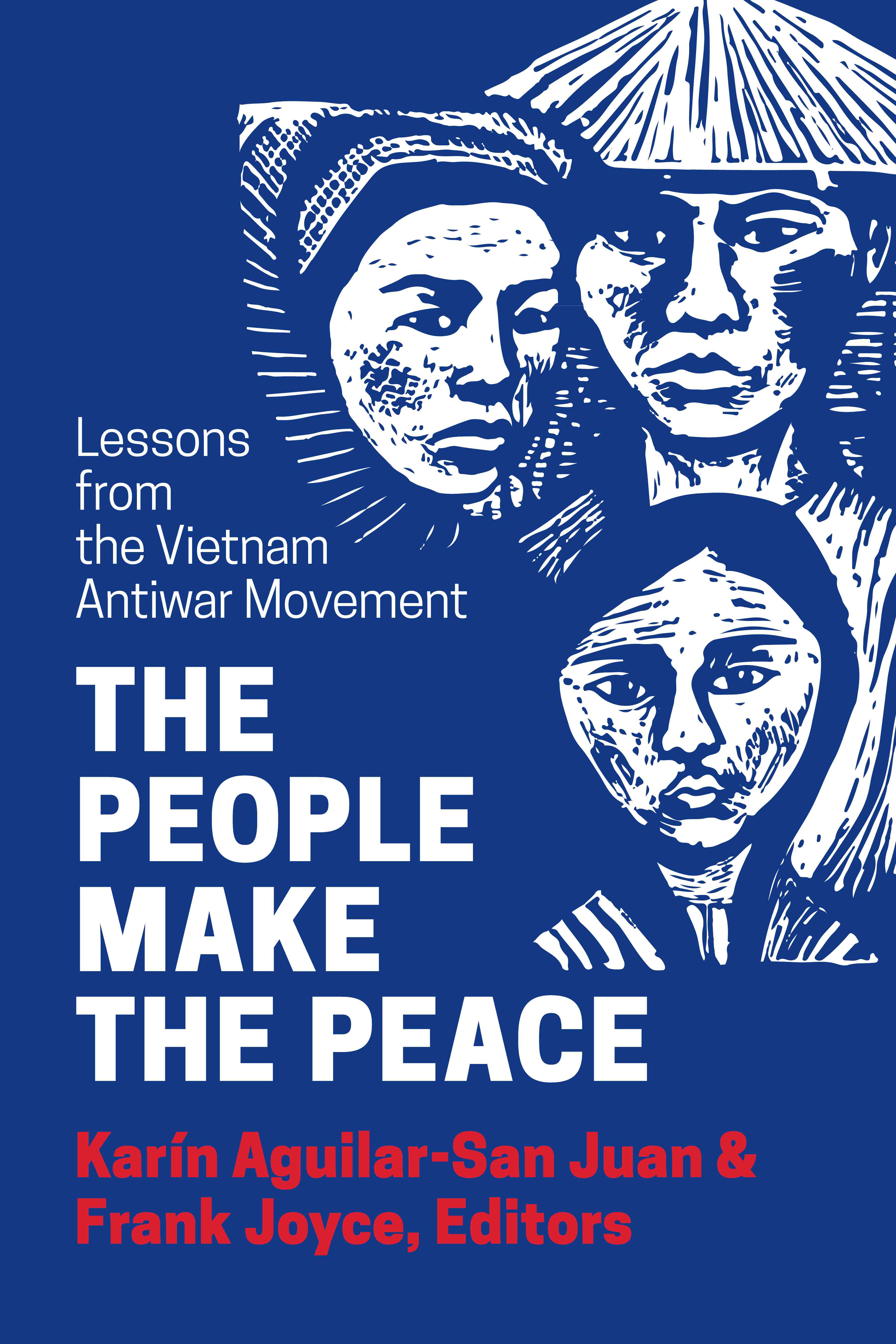We’ve been very sorry to learn of the recent death of Marilyn B. Young, a very distinguished historian of U.S. foreign policy who was consistent and committed in her critique of its militaristic underpinnings.
Professor Young was a veteran member of the history faculty at New York University and a recent past President of the Society for Historians of American Foreign Relations. A survey of her recent publications (right) shows the key role she played transmitting key wisdom on the nature of U.S. wars from earlier generations to the present era.
In 2015, Prof. Young was generous in the praise she gave to those who had edited and contributed to The People Make the Peace:Lessons from the Vietnam Antiwar Movement, an anthology published by Just World Books that year.
The People Make the Peace is an invaluable document describing the varied experiences of one significant segment of the movement against the war in Vietnam. Activists who engaged in what Hanoi and the NLF called “people’s diplomacy,” recall their experiences and place them in the context of a more recent visit to the country as well as current US foreign policy. In addition, five veterans now living and working in Vietnam to alleviate the damage done by the war they fought talk of their past and present experiences.
The volume will be of interest to all who cherish peace and work towards achieving it.
The obituary of Prof. Young that appeared in the New York Times today noted that:
Professor Young joined the faculty of N.Y.U. in 1980. She founded its Women Studies Department, was chairwoman of the history department from 1993 to 1996 and was co-director of the Center for the United States and the Cold War at the Tamiment Library. In 2011, she was elected president of the Society for Historians of American Foreign Relations.
“I find that I have spent most of my life as a teacher and scholar thinking and writing about war,” Professor Young said in her presidential address to the organization. “I moved from war to war, from the War of 1898 and U.S. participation in the Boxer Expedition and the Chinese civil war, to the Vietnam War, back to the Korean War, then further back to World War II and forward to the wars of the 20th and early 21st centuries.”
“Initially, I wrote about all these as if war and peace were discrete: prewar, war, peace or postwar,” she said. “Over time, this progression of wars has looked to me less like a progression than a continuation: as if between one war and the next, the country was on hold.”
Today, more than fifteen years into the “Global War on Terror” declared by Pres. George W. Bush in 2001, her assessment seems truer than ever.
Prof. Young leaves a fine legacy of scholarship, commitment, and quiet activism. We send our condolences to her family and her beloved colleagues.



